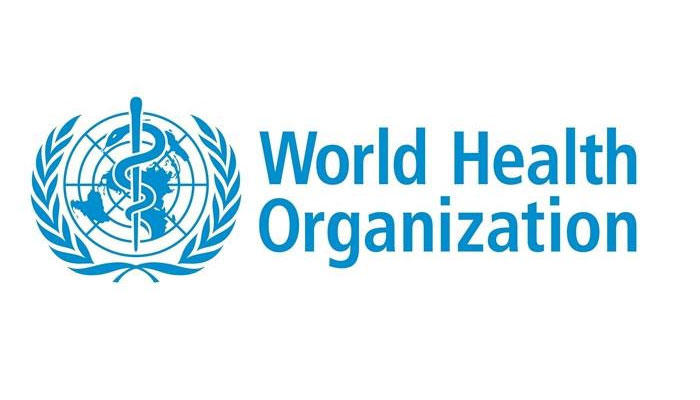Health expenditure 1.2pc of GDP against WHO recommended 5pc
Islamabad: Pakistan is spending far less on healthcare than what is recommended by the World Health Organisation (WHO), a United Nations agency coordinating international health activities and helping governments improve health services.
As revealed by the Economic Survey of Pakistan 2020-21, the country’s health expenditure totalled 1.2 per cent of the gross domestic product in the outgoing financial year against five per cent advocated by the WHO.
It was slightly more than 2017-18's (1.2 per cent of GDP). The cumulative health expenditure by the federal and provincial governments went up 14.35 per cent from 421.78 billion last year to Rs482.27 billion this year.
During the current fiscal, the federal government made the Rs20.194 billion Public Sector Development Programme allocations for 71 health projects. In addition, the government introduced a special programme with an outlay of Rs70 billion to mitigate the impact of COVID-19 pandemic by upgrading health facilities, sewerage system, solid waste management, drinking water supply, and education.
The country’s health indicators continued to record improvement. The life expectancy at birth increased from 66.9 per cent in 2017 to 67.3 per cent in 2019, while the infant mortality rate (per 1,000 live births) went down from 58.8 per cent in 2017 to 55.7 per cent in 2019, maternal mortality rate (per 100,000) from 276 in 2015 to 189 in 2019, under five years mortality rate (per 1,000) from 71.6 per cent in 2017 to 67.2 per cent in 2019, and population growth rate from two per cent in 2017 to 1.9 per cent on 2019. The figures for 2010 weren’t available.
Compared with other Asian nations, Pakistan has the highest life expectancy at birth, infant mortality rate and under-five mortality rate and population growth rate. The percentage of birth attended by skilled health personnel increased from 58 per cent in 2015 to 68 per cent in 2020 (PSLM 2019-20). The country has also recorded high rates of malnutrition.
-
 Pamela Anderson, David Hasselhoff's Return To Reimagined Version Of 'Baywatch' Confirmed By Star
Pamela Anderson, David Hasselhoff's Return To Reimagined Version Of 'Baywatch' Confirmed By Star -
 Willie Colón, Salsa Legend, Dies At 75
Willie Colón, Salsa Legend, Dies At 75 -
 Prince Edward Praised After Andrew's Arrest: 'Scandal-free Brother'
Prince Edward Praised After Andrew's Arrest: 'Scandal-free Brother' -
 Shawn Levy Recalls Learning Key Comedy Tactic In 'The Pink Panther'
Shawn Levy Recalls Learning Key Comedy Tactic In 'The Pink Panther' -
 King Charles Fears More Trouble As Monarchy Faces Growing Pressure
King Charles Fears More Trouble As Monarchy Faces Growing Pressure -
 Inside Channing Tatum's Red Carpet Return After Shoulder Surgery
Inside Channing Tatum's Red Carpet Return After Shoulder Surgery -
 Ryan Coogler Brands 'When Harry Met Sally' His Most Favourite Rom Com While Discussing Love For Verstality
Ryan Coogler Brands 'When Harry Met Sally' His Most Favourite Rom Com While Discussing Love For Verstality -
 Sarah Pidgeon Explains Key To Portraying Carolyn Bessette Kennedy
Sarah Pidgeon Explains Key To Portraying Carolyn Bessette Kennedy -
 Justin Bieber Rocked The World With Bold Move 15 Years Ago
Justin Bieber Rocked The World With Bold Move 15 Years Ago -
 Sam Levinson Wins Hearts With Huge Donation To Eric Dane GoFundMe
Sam Levinson Wins Hearts With Huge Donation To Eric Dane GoFundMe -
 Kate Middleton Steps Out First Time Since Andrew Mountbatten-Windsor's Arrest
Kate Middleton Steps Out First Time Since Andrew Mountbatten-Windsor's Arrest -
 Inside Nicole 'Snooki' Polizzi's 'private' Marriage With Husband Jionni LaValle Amid Health Scare
Inside Nicole 'Snooki' Polizzi's 'private' Marriage With Husband Jionni LaValle Amid Health Scare -
 Germany’s Ruling Coalition Backs Social Media Ban For Children Under 14
Germany’s Ruling Coalition Backs Social Media Ban For Children Under 14 -
 Meghan Markle Shuts Down Harry’s Hopes Of Reconnecting With ‘disgraced’ Uncle
Meghan Markle Shuts Down Harry’s Hopes Of Reconnecting With ‘disgraced’ Uncle -
 Liza Minnelli Alleges She Was Ordered To Use Wheelchair At 2022 Academy Awards
Liza Minnelli Alleges She Was Ordered To Use Wheelchair At 2022 Academy Awards -
 Quinton Aaron Reveals Why He Does Not Want To Speak To Wife Margarita Ever Again
Quinton Aaron Reveals Why He Does Not Want To Speak To Wife Margarita Ever Again




